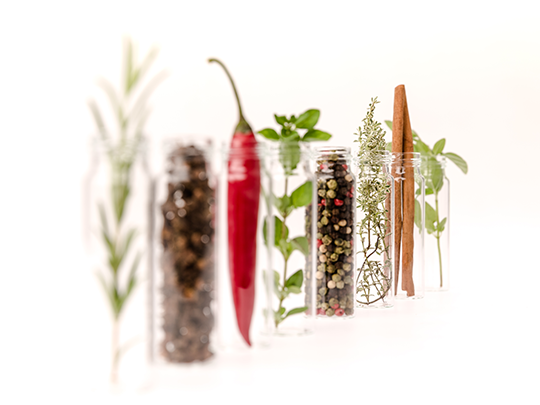Boost protein utilization in poultry
Do you know that the right combination of phytogenics can enhance protein utlization in poultry diets? Learn more about in this article.
Enhance protein utilization in poultry diets with phytogenics
Poultry nutrition increasingly includes a consideration of life cycle analysis and the impact on the environment of several factors including greenhouse gases such as CO2 and nitrogen. These discussions include mechanisms to lower nitrogen outputs from livestock production, for example considering the type of initial protein inputs or improving protein utilization via endogenous or exogenous processes.
Phytogenics (feed additives based on plant extracts) have a role to play in these considerations, and the more we learn, the more important their role becomes. The key is identifying and combining specific plant extracts that can act synergistically to improve nutrient digestibility, while being safe, residue-free and efficacious. Biostrong® 510 achieved just this and was authorized for use in the EU as a zootechnical feed additive to improve the performance of fattening birds.

Increasing nutrient availability and performance
Phytogenics demonstrate improvements in the availability of dietary nutrients in poultry. Analysis of a series of digestibility studies where broilers and layers were fed soy/corn rations and a combination of quillaja saponins, thyme, star anise and rosemary essential oil (Biostrong® 510), showed increases in ileal digestibility of amino acids, fat, calcium and phosphorus. Importantly, an average 3.8% increase in crude protein digestibility was also observed.
The benefits of increased nutrient availability are typically seen as improved performance.
Such as a 2% decrease in FCR, a 1% increase in bodyweight gain or 1% increase laying rate. If phytogenics can increase digestibility of protein, could they have application for alternative protein sources other than soybean? In work undertaken at the Delacon facilities, broilers were fed soy/corn-based rations with either 7% rapeseed meal (RSM) or 7% sunflower seed meal (SSM) and supplemented with or without a phytogenic (Biostrong® 510).
Over a 42-day period, those birds that received the phytogenic had a 1.6-3.2% (RSM and SSM, respectively) increase in bodyweight gain and a 1.1-1.9% (RSM and SSM, respectively) improvement in FCR versus their non-supplemented counterparts. These findings suggest phytogenics have the potential to improve digestibility of alternative protein sources.
Understanding how phytogenics improve protein availability
There are several mechanisms via which phytogenics have been shown to improve protein digestibility. Essential oils such as thyme, star anise and rosemary and quillaja saponins are known to modulate brush border enzyme activity and pancreatic enzymes e.g. trypsin by 13%, thereby increasing amylolysis and pepsiolysis in the small and large intestine.
In vitro cell models using Caco-2 cells have shown that phytogenics can increase the number of nutrient transporters in cell membranes. These transporters include peptide transporter 1 (PEPT1), a cell membrane transporter involved in the uptake peptides into the cells When Caco-2 cells, were incubated with either quillaja saponins, essentials oils of thyme, star anise and rosemary or a combination of saponins and essential oils, the synergy of the specific essential oil mixture and saponins stimulated a greater increase in the number of transporters than either oil or saponins alone.
Capturing the benefit of improved protein digestibility
Phytogenics have the potential to increase the digestibility of both conventional and alternative protein sources, delivering improved performance, possible cost-savings and reduced environmental footprint. However, to maximize phytogenic potential, product efficacy, consistency and safety must be ensured.

David Harrington
As there are increasing occurences in intestinal disorders, gut health becomes more important. “Phytogenics can modulate the intestinal microbiota which can help to regulate inflammatory responses and oxidative stress – an important factor in today’s gut health management,” says David Harrington, former Species Leader Poultry at Delacon. He was an active team member until November 2020.










